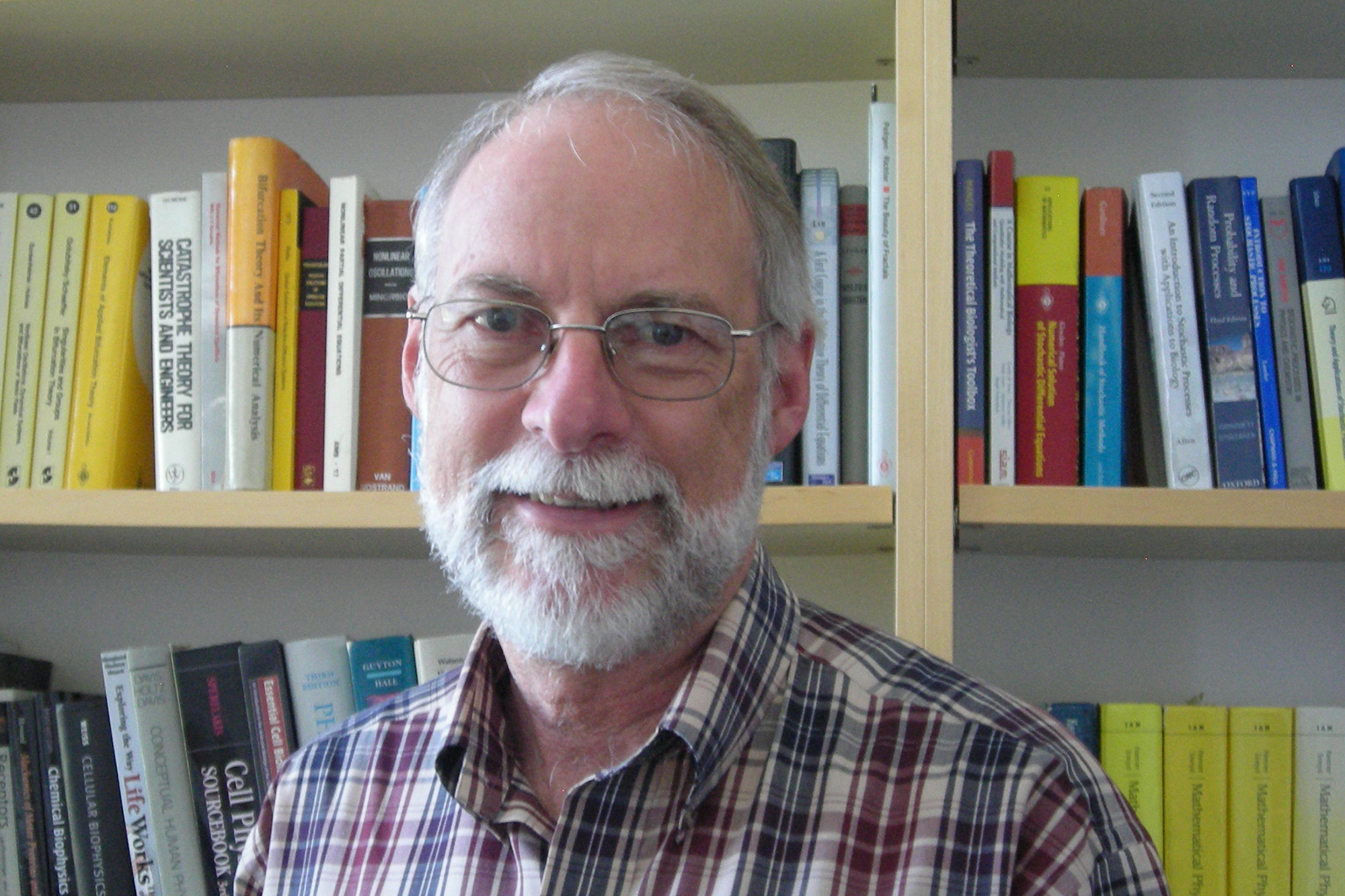
Math Faculty Retiree Jim Keener
THE RETIREMENT OF DISTINGUISHED PROFESSOR JIM KEENER LEAVES AN UNFILLABLE HOLE IN THE WORLD-RENOWNED MATHEMATICAL BIOLOGY PROGRAM THAT HE DID SO MUCH TO BUILD.
Or at least would if he was not planning to continue to provide wisdom and insight to students and faculty alike from his office where the door (and minds) is (are) always open.
Jim joined the University of Utah faculty in the Department of Mathematics in 1978 and started a research program that set the standard for mathematical biology by combining creative modeling built on the devilish details of complex biological phenomena with development of the new mathematics needed to understand those models and answer biological questions. His highly influential work on spiral waves emerged from his interest in cardiac arrythmias, and his perhaps even more influential work on ranking (which inspired the first version of Google’s original PageRank algorithm) emerged from his interest in college football.
His three books, Principles of Applied Mathematics (1988), Mathematical Physiology (with James Sneyd, and winner of the 1998 Association of American Publishers’ “Best New Title in Mathematics”), and the new Biology in Time and Space: A PDE Modelling Approach (2021) are paragons of exposition and laid the foundation for the rigorous and deep applied mathematics that underlie any serious quantitative study of biology.
Jim is the visionary leader for the U’s graduate program in mathematical biology. The success of this program reflects his own strengths: inspiring mentorship, biological and mathematical breadth, the joy of collaboration, ability to communicate with both mathematicians and biologists, and the taste to identify and solve important problems. The reach of this program is extraordinary, with graduates holding leadership roles in research universities, liberal arts colleges, industry, and in the mathematical biology community. Students in the program today have a built-in international network of friends, colleagues and mentors.
Like most people who get this much done, Jim is fun to be around. His “cabin parties” are legendary, although what actually happens there can never be revealed. Dinner with Jim is a delightful mix of challenging debate and convivial laughs. His joy in inquiry and in people builds on a deep spirituality and love of nature that underpin the wisdom that we look forward to sharing for many more years.

by Fred Adler
Professor of mathematics and Director of the School of Biological Sciences